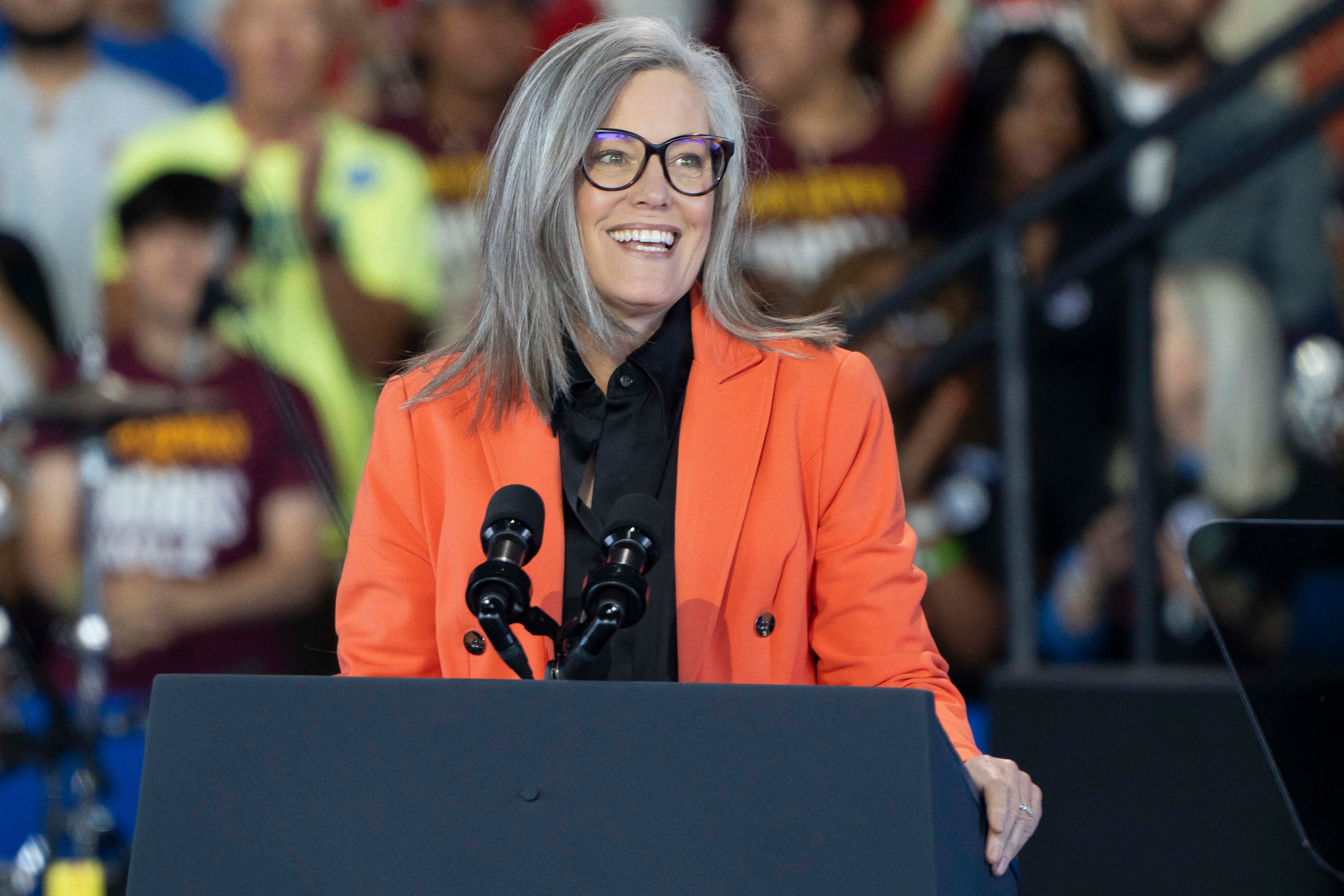Votebeat is a nonprofit news organization reporting on voting access and election administration across the U.S. Sign up for Votebeat Arizona’s free newsletter here.
Arizona’s errors tracking voter citizenship over the last 20 years stemmed from policy decisions made by the Motor Vehicle Division on how to classify driver’s licenses, along with a design error in the state’s voter registration system, an audit released by Gov. Katie Hobbs on Friday said.
The report laid out for the first time the extent of the state’s problem with tracking voter citizenship. And it confirmed, as Votebeat found in October, that it didn’t simply stem from a glitch in the coding of the system, as officials initially announced.
Hobbs ordered the comprehensive review of state policies in September after officials found that a problem with the system allowed more than 200,000 voters to be registered to vote full ballots, even though they had never been asked to provide proof of citizenship. In Arizona, only people who have provided citizenship proof can vote in state and local elections.
Hobbs recruited two former recorders, Patty Hansen of Coconino County and Robyn Stallworth-Pouquette of Yuma County, to review MVD policies and practices relevant to voter registration. The two reported their findings to the MVD, which compiled the report.
The report included three main findings.
First, the report found a loophole in state law involving people born in American Samoa and Swains Islands who have not become naturalized citizens. Those people are considered U.S. nationals, and can get a U.S. passport, but they are not citizens with full rights.
But Arizona accepts U.S. passports as proof of citizenship for voting, the audit found, so this loophole improperly makes it possible for U.S. nationals to register to vote. The report indicates that there is no way of knowing if any nationals registered to vote using a passport, but emphasizes that this probably happened rarely — if at all — because registrants also must attest to their citizenship under penalty of perjury.
Fixing the loophole would require a change to state law to ensure that proper documentation is used that verifies citizenship for U.S. nationals.
A second finding was that the Secretary of State’s Office and Motor Vehicle Division must communicate better. The secretary’s office maintains the voter registration database for 13 of 15 counties. When county recorders check the citizenship status of a new registrant, they use that system to query Motor Vehicle Division information.
The two agencies have already begun meeting more frequently, and, under a recommendation from Hansen and Stallworth-Pouquette, election officials will begin receiving training when they receive their election officer certification on how the MVD system functions, the report states.
“Finding regular time to share information and build relationships between the MVD and election officials will help eliminate issues in the future,” the report states.
The last recommendation from the former recorders involves ensuring that inactive MVD records have updated citizenship statuses. Those are for residents whose licenses are expired or canceled. When the secretary’s office and Motor Vehicle Division attempted to find all voters that might have inaccurate citizenship information, they did not check these records.
Report outlines MVD policy problems
County recorders rely heavily on driver’s license information to check citizenship status when someone tries to register to vote. Only driver’s licenses issued after October 1996 count as proof of citizenship, since that’s when the state started collecting citizenship information for normal driver’s licenses.
But the report explained that since 2020, when the MVD updated its driver’s license database, the MVD has classified any resident with a driver’s license issued before October 1996 as a citizen, even though the state hadn’t asked for documentation. That means, if a county recorder looked up their information, those drivers would be classified as citizens, even though there was no proof on record.
But even before 2020 — all the way back to 2007 — there was another problem causing recorders to get inaccurate information about citizenship during these checks. That’s because the secretary’s system was set up to gather just the issuance date of the driver’s license as an indicator of citizenship verification. That issuance date in the records was often incorrect — if the voter had renewed or gotten a duplicate license after 1996, it would show the most recent issuance date. That signaled to the recorders that the voter had provided citizenship proof, even if they hadn’t.
The voter registration system was supposed to provide further information on each license, such as each subsequent issuance date, but because of an error in the system, it did not, according to the report.
Also, the assumption that the MVD was collecting citizenship information when someone renewed their license proved to be not true. MVD told Votebeat in October that it changed that policy.
State officials have now updated state databases to ensure county officials receive accurate information about resident’s citizenship. But Hobbs wanted to look further to see if there were other improvements needed.
County recorders were recently sent the final list of voters affected by the problem. With local elections approaching in some counties, recorders will need to quickly notify the affected voters that they are required to provide proof of citizenship before voting.
Correction: Feb. 3, 2025: This story was corrected to reflect that Hobbs recruited two former recorders for the audit, she did not pay them.
Jen Fifield is a reporter for Votebeat based in Arizona. Contact Jen at jfifield@votebeat.org.





